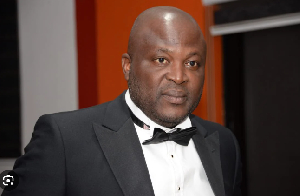A release by the Bank of Ghana yesterday effectively has confirmed that two of the three ongoing mergers between universal banks in Ghana have been completed. The release lists 23 commercial banks as duly registered by the central bank.
The list includes First Atlantic Bank, but not Energy Commercial Bank, which it has been in the process of acquiring since December last year; and Omni-BSIC Bank which is the result of a merger between the erstwhile Omni Bank and BSIC (otherwise known as Sahel Sahara Bank), both of which had been in merger negotiations since mid-2018, as a marriage of “two equals” as confirmed by the name now adopted for the merged entity.
Interestingly, although the BoG had presented both mergers as completed when announcing the results of the recapitalization process at the start of this year, all four banks had continued to do business with the public as separate entities up till now. But the BoG’s latest release effectively terminates the existence of Energy Bank, whose Initial Public Offer to seek equity capital through the Ghana Stock Exchange late last year completely failed. It also confirms that the erstwhile Omni Bank and BSIC are now one single entity.
Both mergers have been consummated to produce banks that meet the GHc400 million minimum capital requirement set by the BoG in September 2017 with a December 31, 2018 deadline for completion.
Curiously however, the BoG’s latest release effectively confirms that the acquisition of GHL Bank by First National Bank has still not been completed. Both banks are listed as 23rd on its list, even though listed separately with regards to name, physical head office address and telephone numbers. However neither website address or email address are attached to GHL Bank’s listing as done with all the other banks on the list.
Another issue already being brought up by banking industry commentators is the inclusion of the five indigenously owned banks selected for equity financing support from government’s special purpose vehicle. Ghana Amalgamated Trust, in the BoG’s list. Their argument is that GAT is only now preparing to issue two tranches of five year bonds to raise the money with which it intends to provide the requisite equity capital for the five banks to meet the central bank’s GHc400 million minimum capital requirement; there is no certainty that the two bond issues will be successful.
Indeed, as it is now, all five banks are operating with less than the requisite minimum capital. Indeed, one of them, the state owned National Investment Bank still has a capital deficit of about GHc700 million ( meaning that it requires GHc1.14 billion in bond proceeds) and some privately owned banks were forcibly liquidated for less during the BoG’s house-cleaning exercise.
Critics thus argue that the BoG should have waited until the completion of the impending GAT bond issuance before including those five banks in its list of duly registered banks, especially as its own deadline for their recapitalization of end of March 2019 is just weeks away.
Defenders of the BoG ‘s latest list however argue that it has included them because government has provided assurances that it would directly provide the requisite new funds if the impending bond issuance fails. But while this may be the case with the banks where it has shareholding – NIB, Agricultural Development Bank and Omni-BSIC, it is unlikely that government would be willing to put up the GHc251 million and the GHc247 million needed by Prudential Bank and Universal Merchant Bank respectively both of them being privately owned.
Attention will now turn intensely to the two tranches of bond issuances to be done imminently by GAT s well as the completion of the acquisition of GHL Bank by First National Bank. While the latter transaction is certain to be completed successfully sooner than later, the former, involving the issuance of GHc 1.92 billion in medium term bonds is not by any means a done deal yet.
Business News of Sunday, 3 March 2019
Source: goldstreetbusiness.com

















